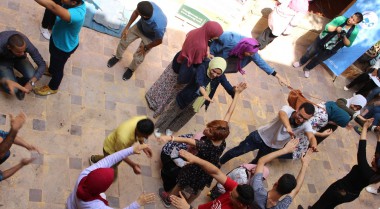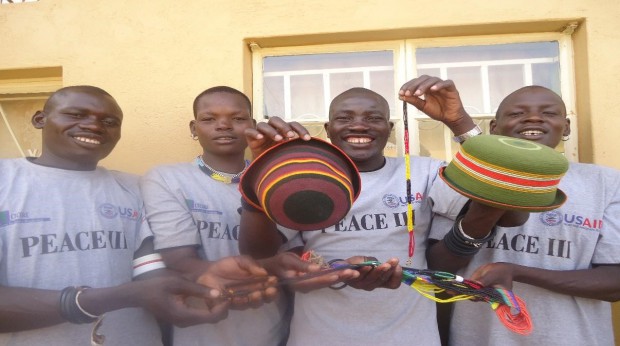
Promoting sustainable peace in MENA
With the Arab Spring in 2011, many had high hopes for democratic reform in the Middle East and North Africa (MENA) region. What followed was many authoritarian regimes resorting to violent repressession. Today, the overall picture of the region is looking bleak. There is a full scaled armed conflict in Syria, a regional power struggle between Iran and Saudi Arabia, fuelling ethno-religious sectarianism throughout the region. The repressive political landscapes and high levels of unemployment and violence are worsening factors.
These challenges reveal not only the precarious context in which our network members work but also demonstrate the necessity to facilitate a greater role for civil society within the political sphere in general.

What are our members doing?
Our members are focusing on bringing human security to the region. They are also working with youth as it is key to include youth for sustainable peace. They recently met in December in Lebanon, to discuss how to tackle the challenges which the whole region faces as a network.
Human Security
One of the main focuses is on human security and the importance of increasing the involvement of youth and women in our work. The whole region is affected by a lack of human security. Beyond the war-torn countries the population suffers from regular threats related to severe limitations to human rights, going from freedom of movement to the freedom of expression and many others. The proliferation of arms and the trade of weapons in the region is a problem that jeopardizes the security of the people. The hate speech, mostly concerning the different confessions or political parties, prevents the freedom of expression. In many cases, citizens are even tortured whenever they express a different opinion. This has been the case for many thousands of youth that have been arrested in the last years.
The proliferation of arms and the trade of weapons in the region is a problem that jeopardizes the security of the people.
Youth and peace
The MENA region also has been suffering from a very limited space for civil society, due to the long presence of dictators that have refused to allow any voice to be raised. The conflicts affecting the area have prevented people from meeting the basic needs and the essential freedom. At the same time, the existing conflicts have pushed the community to organize themselves into associations and organisations, spontaneously created, to cope with the everyday problems while wars keep going and the international community does not always reply to the urgent needs in a timely manner. In this growing resilience, youth have played in the area a very active role, from the beginning of the protests until the after-war, in mobilizing the community, but they have also been paying the repercussions of their actions with threats, prisons, exile.
Therefore, the need for inclusion of youth and women has been recorded all over the region, from Tunisia to the Gulf. In fact, all the countries have faced a severe shrinking space for civil society.
Dialogue for peace
The fact that several countries have no unity within themselves and cope with sectarian or tribal division of population, affects the nationhood and, as a consequence, the cooperation among the parties. The region has been dealing with numerous countries that have relevant internal divisions. This is an important factor in terms of conflict resolution, when the population is divided the way for a commonly-agreed solution gets further. For this reason, the work our members do on the ground, trying to bring communities together and reduce the distance created by sectarianism is the first step towards peace. Workshops and trainings about peace building starting from dialogue and peaceful means for conflict resolution help the community feel closer and united and enhance the cooperation among key actors in the countries.
While trying to solve conflicts, these are of course ways to prevent new ones, by letting people reflect on the root causes that created the conflict and on the possible strategies such as dialogue and work on peace building to prevent the emergence of other tensions.
We, as a regional network, believe that enabling the “freedom from fear”, as foreseen within a human security approach, is a way to promote sustainable development and sustainable peace throughout the region and that is where we want to contribute.

